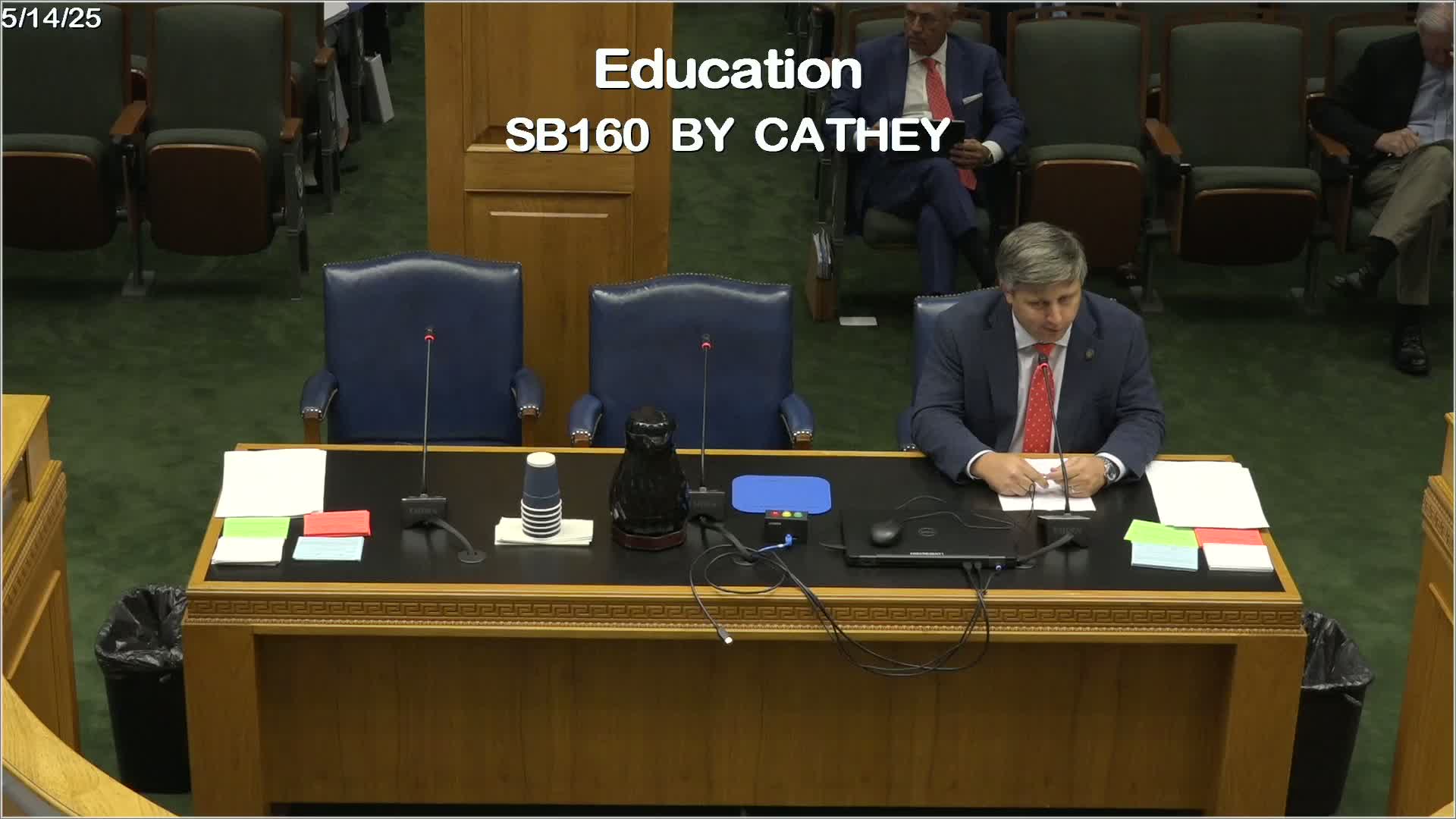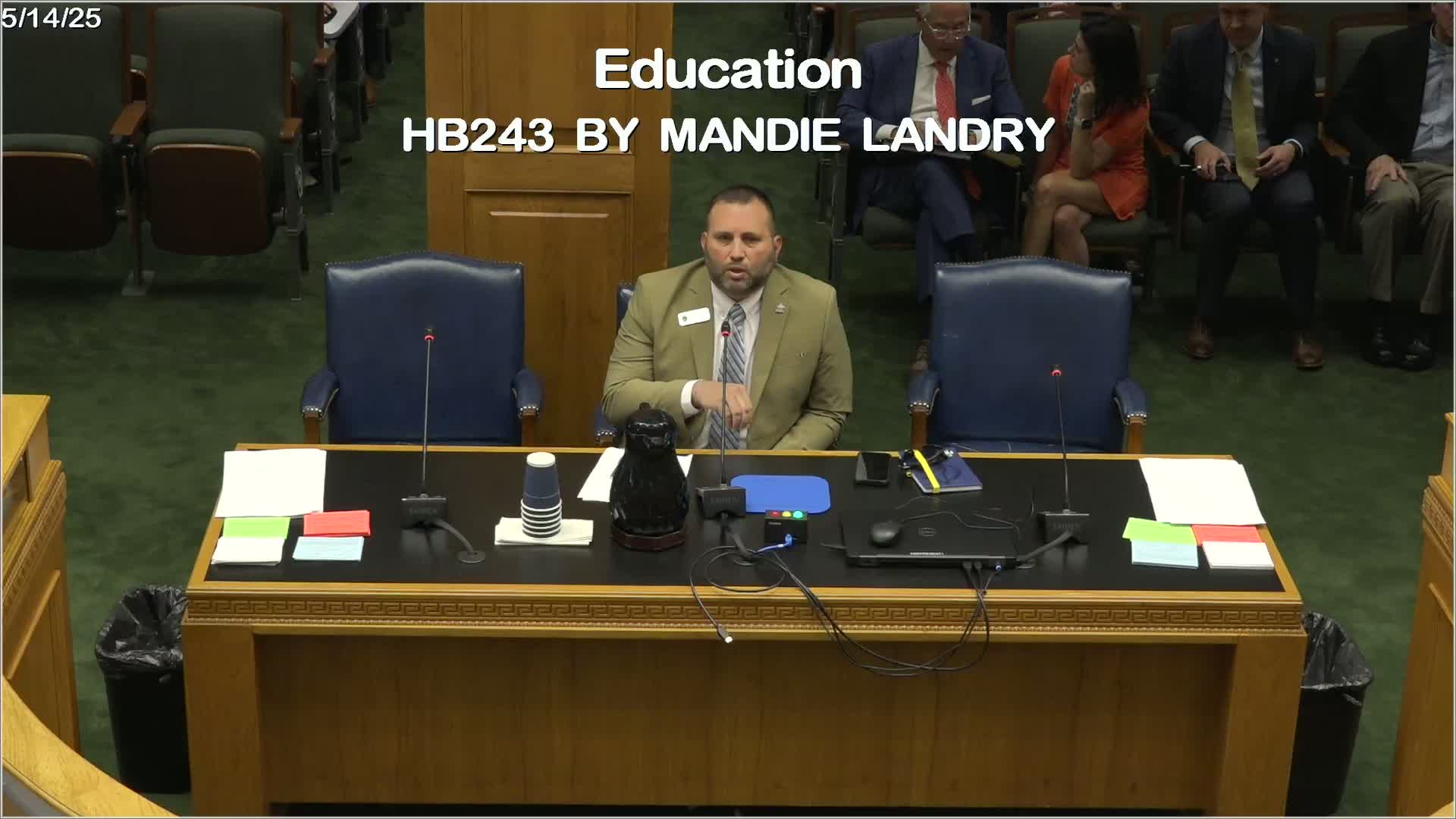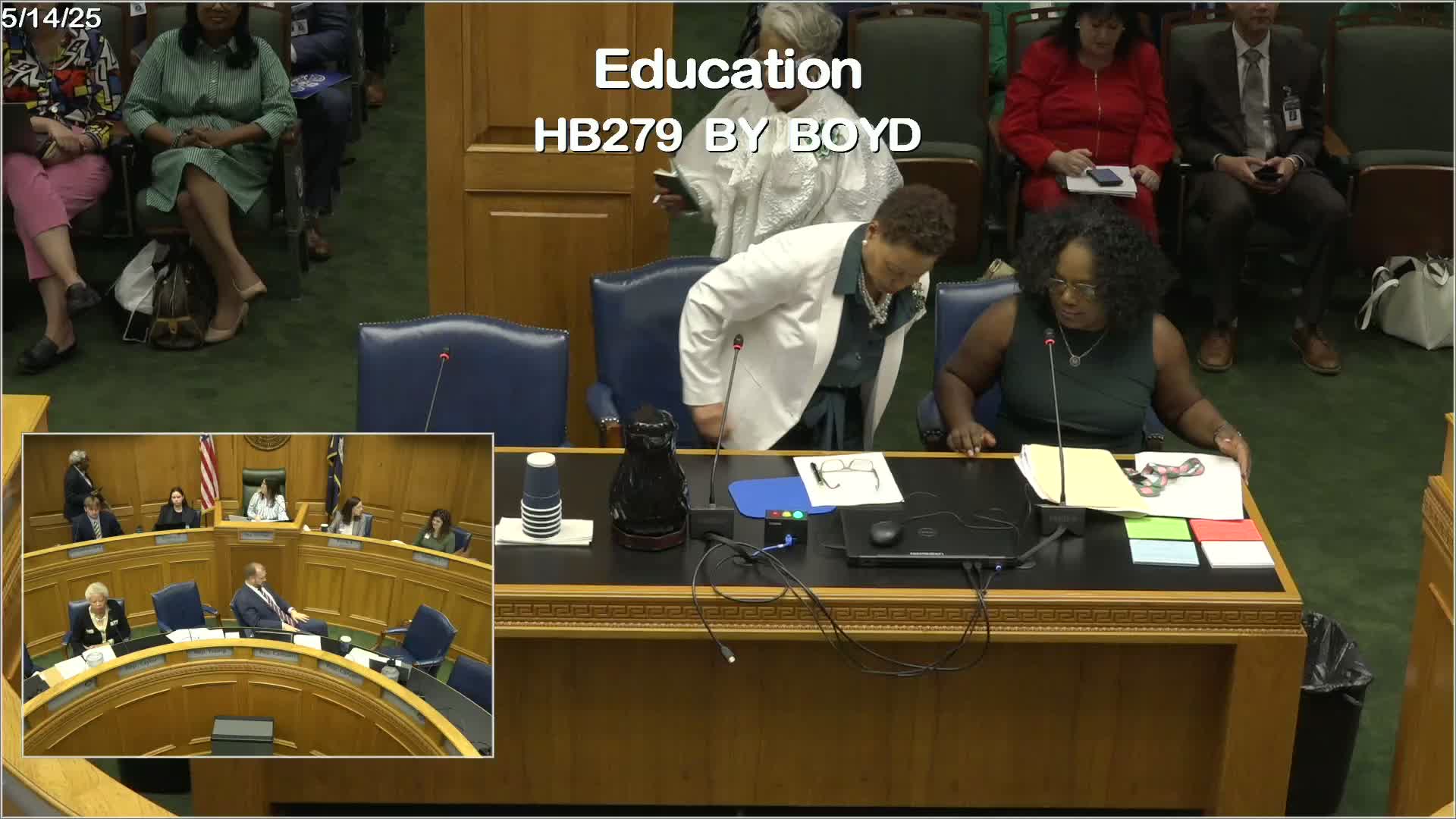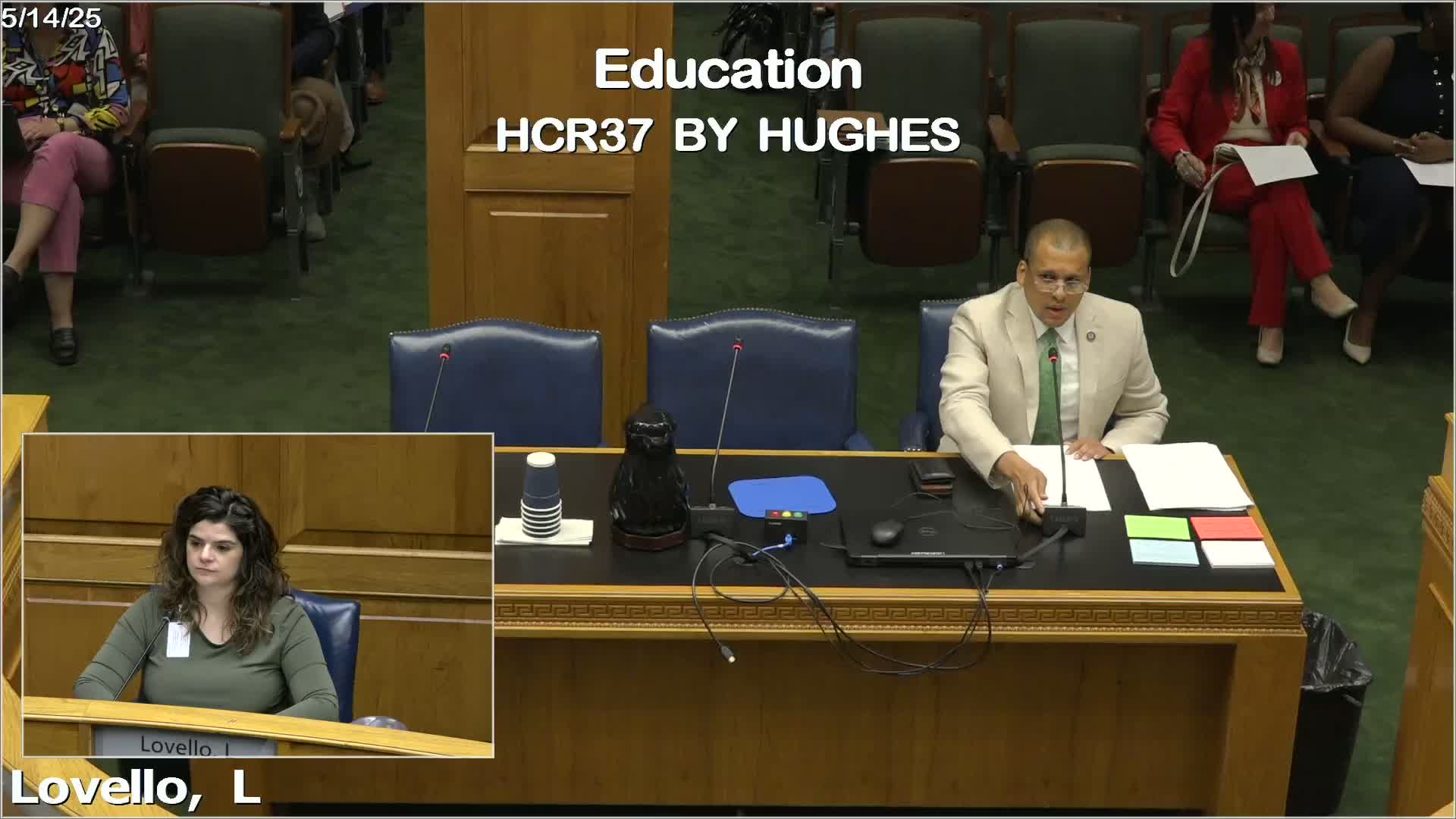Article not found
This article is no longer available. But don't worry—we've gathered other articles that discuss the same topic.

Lawmakers debate banning ultra‑processed foods in school meals and seek study on healthier options

Committee clears bill setting safety requirements if schools use ride‑sharing companies for student transport

House panel rejects measure to require LEAP testing for LA Gator scholarship students

